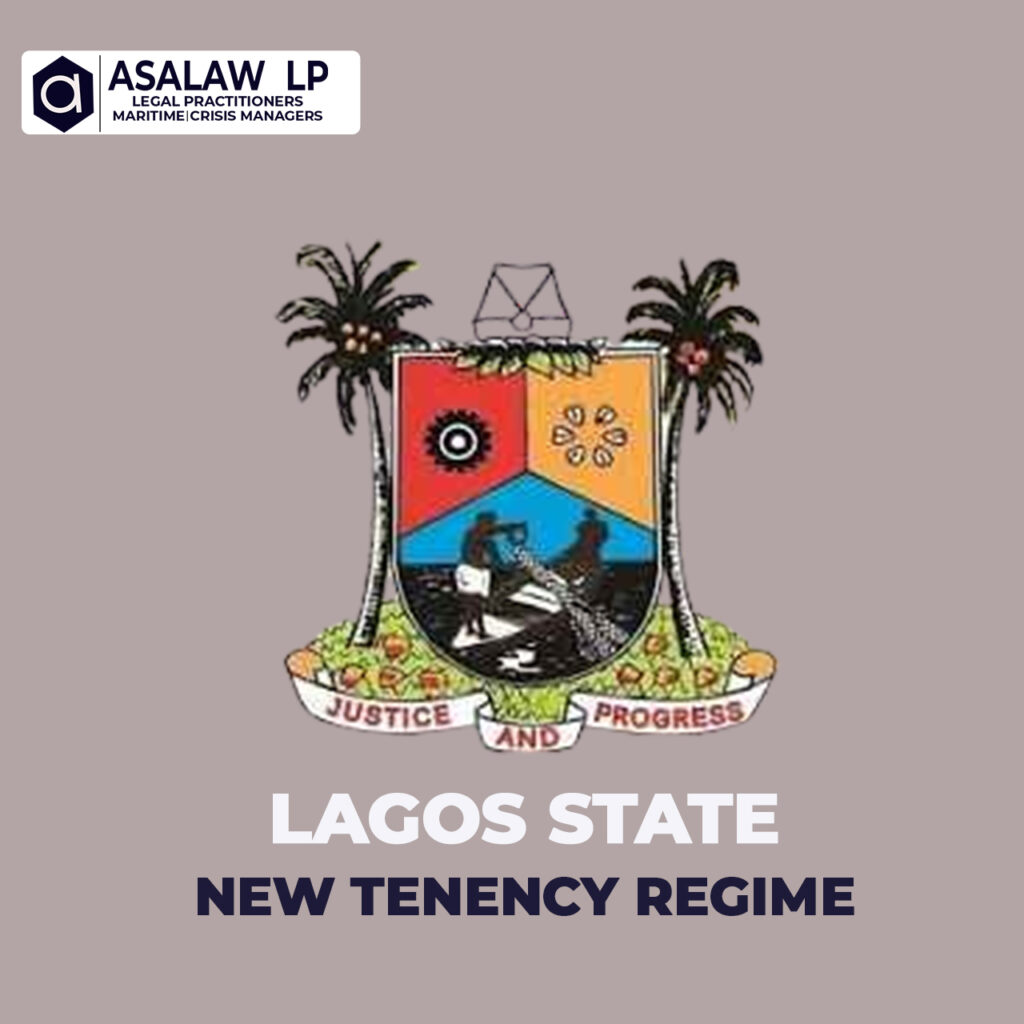The Lagos State Tenancy Law: Regulating the Landlord-Tenant Relationship

Introduction
The Lagos State Tenancy Law was enacted in 2011 to regulate the landlord-tenant relationship in the state. The law aims to provide a legal framework for the rights and obligations of both landlords and tenants, and to help address common issues that arise in tenancy agreements.
the landlord-tenant relationship in the city has been characterized by power imbalances, arbitrary rent increases, and the lack of a clear legal framework to govern mutual rights and responsibilities. In an effort to address these challenges, the Lagos State government enacted the Tenancy Law in 2011, to provide a comprehensive legal structure for regulating rental housing in the state. By establishing mandatory contractual terms, rent control measures, and dispute resolution mechanisms, the law seeks to bring more stability, fairness, and accountability to the landlord-tenant dynamic. As a significant policy intervention in a critical sector, the Lagos State Tenancy Law merits close examination from a legal perspective.
Scope
This Law applies to all premises within Lagos State, including business and residential premises with the exception of residential premises, Owned or operated by an educational institution for its staff and students, Provided for emergency shelter, In a care or hospice facility, In a public or private hospital or mental health facility, Made available in the course of providing rehabilitative or therapeutic treatment.
The Law does not apply to Apapa, Ikeja GRA, Ikoyi and Victoria Island.
The Rent Control and Recovery of Premises Law of Lagos State 1997 is the applicable law.
Key provisions
1. Rent Receipts
Starting with the commencement of this law, all landlords shall be obligated to issue a rent payment receipt to their tenants upon receiving rent payments. The rent payment receipt must include the following information:
(a) The date the rent was received
(b) The names and addresses of the landlord and the tenant
(c) A description and location of the premises for which the rent was paid
(d) The amount of rent paid
(e) The period the rent payment covers
Any landlord who fails to provide a rent payment receipt to their tenant as required under this section shall be liable, upon conviction, to a fine of One Hundred Thousand Naira.
2. Rent Payments and Increases
The legislation regulates the timing and frequency of rent payments, requiring that rent be paid at the beginning of the rental period (monthly, quarterly, or annually). It also limits rent increases to once per year and mandates at least 3 months’ notice to the tenant.
3. Security Deposits
The law caps the maximum security deposit amount at 6 months’ rent and outlines the permissible uses of the deposit, such as for repairs to tenant-caused damage. It also requires the full refund of the deposit at the end of the tenancy, provided there are no outstanding issues.
4. Termination of Tenancy
The law specifies the notice periods required for both landlords and tenants to end the lease, based on the length of the rental period if there is no written agreement prior. This helps to protect tenants from arbitrary eviction and gives both parties a clear timeline for vacating the property.
For weekly or monthly tenancies, the law mandates a minimum of one month’s notice. For yearly tenancies, the notice period is extended to three months. In the case of fixed-term leases, the notice period is determined by the terms of the written contract, typically ranging from three to six months. These notice periods apply equally to landlords and tenants, ensuring that neither party can abruptly terminate the agreement without adequate warning.
The Tenancy Law also outlines the legitimate grounds under which a landlord can terminate a tenancy agreement. These include non-payment of rent for at least one month, a breach of the contractual terms by the tenant, the landlord’s need to use the property for their own residential purposes, or the landlord’s intention to substantially renovate or redevelop the property.
Importantly, the law prohibits “self-help” evictions, where landlords forcibly remove tenants without due process. Any such unlawful evictions can result in fines or even imprisonment for the landlord. Instead, the law requires landlords to obtain a court order for eviction if a tenant refuses to vacate the premises voluntarily after receiving the proper notice.
5. Landlord and Tenant Obligations
The legislation delineates the respective responsibilities of landlords and tenants. Landlords are required to maintain the property in a habitable condition, carry out necessary repairs, and ensure access to basic utilities. Tenants, on the other hand, must use the property for its intended residential purpose, pay rent on time, and avoid causing damage.
6. Dispute Resolution
The law establishes a dispute resolution mechanism involving initial mediation overseen by the Lagos State Real Estate Transaction Department, and the option to escalate unresolved cases to the Rent Tribunal for adjudication.
In the event of disputes arising between the two parties, the Lagos State Tenancy Law provides a dispute resolution mechanism. This involves an initial mediation process overseen by the Lagos State Real Estate Transaction Department. If an amicable solution cannot be reached, the case can then be taken to the Rent Tribunal for adjudication. This alternative dispute resolution system is designed to be more accessible and speedier than the traditional court system.
Conclusion
The Lagos State Tenancy Law of 2011 is a landmark piece of legislation that has the potential to transform the rental housing sector in Nigeria’s largest city. By establishing a comprehensive legal framework to govern the landlord-tenant relationship, the law aims to bring more stability, fairness, and accountability to this critical domain. The 2011 Tenancy Law aimed to address these imbalances by establishing a structured framework for the termination of tenancy agreements. At the heart of this framework are the notice period requirements, which specify the minimum amount of time that both landlords and tenants must provide when seeking to end a lease.
